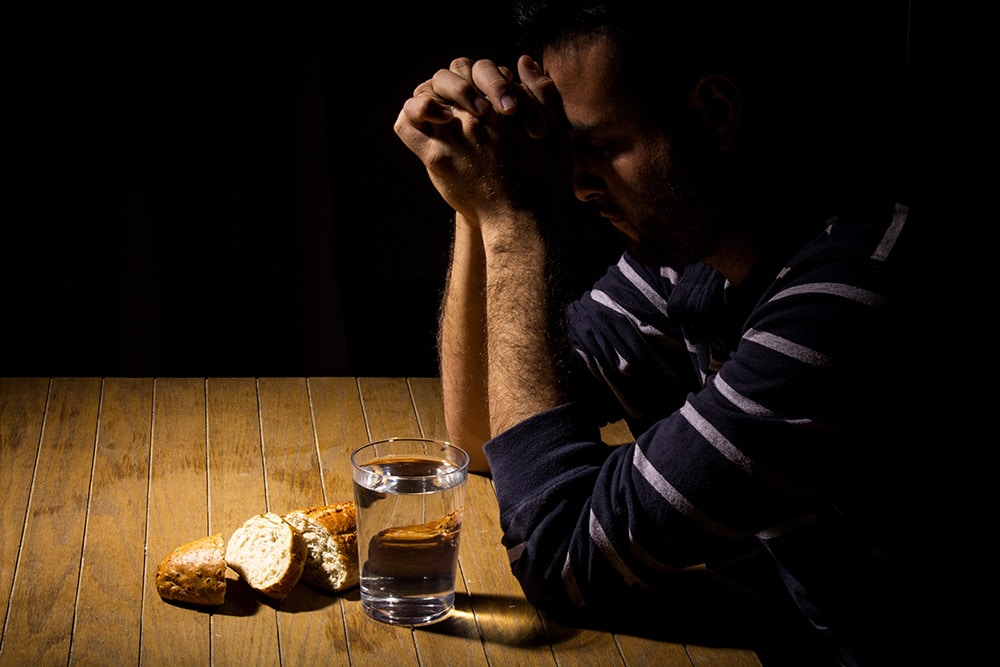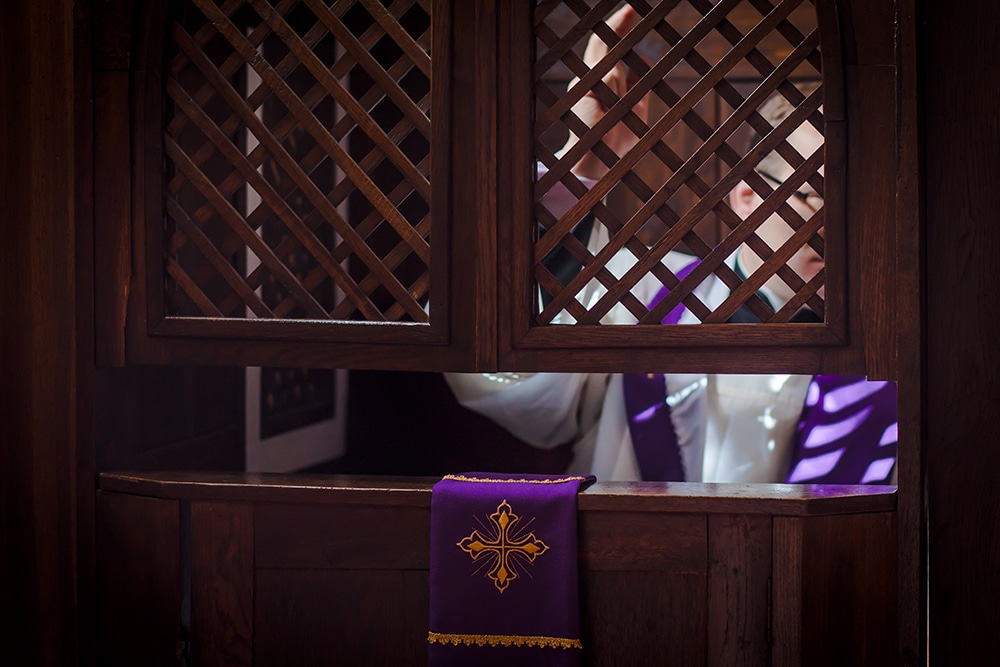With Lent about to get underway, now is a good time for preparation — to make a plan on how we can achieve the most beneficial outcome from this 40-day season. One way is to look at the three practices that the Church recommends for Lent — namely, prayer, fasting and almsgiving — and to ask how each is going. That is, you could ask yourself a few questions: “What will my commitment to prayer be this Lent? Am I planning to fast or deny myself during Lent in ways that will help me to grow in holiness? Will I do something extra in Lent to help the needy?” Each question is worthwhile, but the second is often the hardest to answer, because we struggle to see how fasting, or self-denial in general, contributes to spiritual growth. Here, then, are four ways in which self-denial can spiritually benefit us, along with some thoughts after each one on how to discern whether or not our self-denial is going well.
1. Protection
First, acts of self-denial can benefit us by protecting us against bad behavior. Suppose I have developed the bad habit of spending too much time on social media apps. Denying myself some access to my smartphone can offer some protection against this bad habit. Or if I have a tendency to drink too much wine in the evening, denying myself alcohol during Lent can protect me from this bad behavior.
Are there some bad behaviors, perhaps ones that have become habitual, from which you could use some protection? And if so, are you implementing forms of self-denial to do this? If you are not using self-denial to protect against a known bad behavior, maybe you can adopt a form of self-denial to accomplish this purpose.
2. Probing our hearts
Second, self-denial can benefit us by probing our hearts. That is, self-denial can test our hearts to see what is in them. For example, suppose I have given up eating between meals on certain days in Lent, and I find that on these days I have become irritable. At first, it might seem that this practice of self-denial has not helped, since the practice has not made me a better person but a more cranky one. However, it helps by showing me something about myself — namely, that I am so attached to the comforts of eating that, when deprived of those comforts, I become an unpleasant person. This is beneficial to know because, for one, it humbles me. Also, it shows me what I must still work on — namely, greater detachment from bodily comfort. So, rather than jettison this practice of self-denial, I can use it as an opportunity to develop my ability to keep my interior poise when things get uncomfortable.
We can compare this benefit to that of holding routine fire inspections in buildings or conducting an eye exam when one renews a driver’s license. These periodic tests are done to make sure that important things are functioning properly. Similarly, the spiritual life requires that we function properly in certain areas. For instance, one should be able to do what is right even when it is not physically comfortable. Self-denial can test whether we have the ability to do this by seeing whether we can keep interiorly poised when we go without some physical comforts. It is not necessary, or recommended, that you deny yourself all physical comforts, but simply some of them in order to test yourself. Therefore, you might ask yourself, “Is my Lenten self-denial showing me whether or to what extent I have some detachment from physical comforts?” If it is showing this, it is going well.
3. Things worth keeping in mind

Third, self-denial can help us by reminding us of things worth keeping in mind. For example, when I give up something during Lent, this can remind me of the (much greater) sacrifice that Jesus made on the cross. Practicing self-denial in Lent can also remind me of my Catholic identity, since giving up things in Lent is a standard Catholic practice. Further, recall Jesus’ response to the devil when he was fasting in the desert and felt hunger. The devil tempted him to turn some stones into bread and Jesus replied, “One does not live by bread alone, but by every word that comes forth from the mouth of God.” (Mt 4:4, cf. Dt 8:3). Thus, fasting was for Jesus an opportunity to remember that human beings need not only physical food but the spiritual nourishment that comes from God. Similarly, when we deny ourselves and long for the comfort of what we have given up, this can remind us that God is our most profound comfort and that our deepest longing should be directed to him.
Is, then, your Lenten self-denial reminding you of important things? Does it make you think of Jesus’ sacrifice? When you give up some comfort, does this direct your mind to the fact that God is the deepest and truest source of joy and that you should seek him above all else? If your self-denial is pointing to such things, it is going well.
4. Practice good acts
Fourth, practices of self-denial can help us to practice good acts. Here, the external act of self-denial provides the condition or the occasion for doing an upright interior act. And the more one does these good acts, the more one grows in virtue. For example, when I deny myself some comfort and am reminded that God is my deepest comfort, that provides an occasion for lifting my heart to God in desire and thus practicing love for God. Or when I deny myself food in between meals and am tempted to become cranky, this is an occasion for practicing patience. Or when fasting is done as part of storming heaven for aid, it is an occasion for practicing petitionary prayer.
Can you name some good acts that your Lenten practices of self-denial have become occasions to practice? If so, that indicates that your self-denial is going well.
May we, therefore, use self-denial in Lent to do the following: protect us from bad behaviors, probe our hearts to see whether things are functioning properly in them, point our minds to what matters most and practice virtuous acts. If we find that our practices of self-denial are not helping in any of these ways, we might consider making some adjustments so that we can make the most of this holy season.
Abbot Austin G. Murphy is the superior of the Benedictine monastery of St. Procopius Abbey in Lisle, Illinois.







